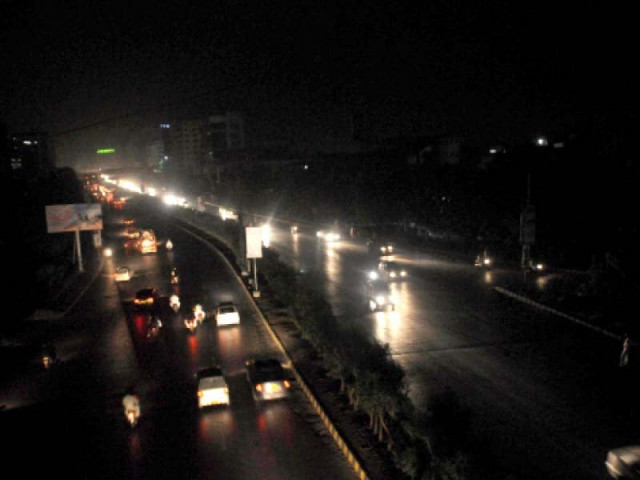NTDC, KE blamed for Jan blackout
Regulator releases inquiry report on power breakdown after two-month delay

The National Electric Power Regulatory Authority (Nepra) has released its inquiry report on the countrywide blackout in January 2023, after a delay of two months.
It held National Transmission and Despatch Company (NTDC), K-Electric (KE), Port Qasim Power Company Limited and Central Power Generation Company Limited (CPGCL) responsible for the power breakdown across the country on January 23, 2023.
The report said that the contributing factors for cascaded tripping were the injection of wind power in the South and curtailment of hydel generation at Ghazi Barotha Power Station in the North by the National Power Control Centre (NPCC).
The running back of Port Qasim Power Plant, instead of shutting down, at over-frequency setting was another contributing factor.
The national grid system and KE system were completely restored at 03:22 am and 05:08 am, respectively, on January 24.
The factors for delayed restoration were frequent tripping of Tarbela units, late synchronisation of Tarbela and Mangla Power Stations by system operator and delayed availability of power plants despite Notice to Sync (NTS) by the system operator.
Causes and faults, which resulted in cascaded tripping and system collapse, included the induction of power in the South and reduction of generation in the North, which caused oscillation in the system and gave rise to “power swing”.
Power swing could not be controlled due to the non-operation of protection devices. Hence, in the South initially over-frequency and later under-frequency whereas only under-frequency in the North caused the cascaded tripping of lines and power houses, which resulted in total blackout in the country.
The report held NTDC, CPGCL, Port Qasim Power Company Limited and KE jointly responsible for the incident. NTDC was held responsible for issuing dispatch instructions without due consideration of the prevailing network conditions, inconsistent protection settings and non-activation of out-of-step splitting system.
CPGCL was held responsible for unavailability of its 747MW Guddu station in the system on account of non-insurance.
Port Qasim Power Company failed to trip at the set over-frequency values while KE failed to remain in island mode due to the tripping of Bin Qasim Power Station-II (BQPS-II).
According to the inquiry report, the delay in restoration of NTDC system was mainly due to the failed attempts at black start facilities of Wapda hydel power stations and Kot Addu Power Company (Kapco).
Other factors included delay in synchronisation of various power plants and unavailability of Scada system at NPCC. KE system restoration was also delayed due to the repeated failed attempts at their black start facilities.
The report recommended carrying out a compensation study and taking required measures in light of the study to avoid power swing.
“Stability of high-voltage, direct-current (HVDC) system needs to be ensured through a proper study to avoid frequent signals of ‘commutation failure’,” it said.
“NTDC staff needs to be trained for thorough understanding of HVDC transmission system.”
It stressed that a fully functional Scada facility was essentially required for the system operator in order to ensure on-line monitoring of system parameters for the sake of system security, stability and analysis of events.
It called for ensuring the implementation of protection settings, issued by the NTDC for power plants. “NTDC shall ensure the healthiness and operation of recently installed out-of-step devices, as the same did not operate during the event,” it said.
According to the report, the quantum of load to be rejected through the under-frequency schemes needs to be increased, especially in the southern region, where it is considerably less. And simultaneous tripping of K2/K3 units on over-frequency should be made stage-wise.
SECL, Thal Nova and Thar Energy plants, which are not included in the over-frequency tripping scheme, shall be considered, it said.
Published in The Express Tribune, April 1st, 2023.
Like Business on Facebook, follow @TribuneBiz on Twitter to stay informed and join in the conversation.



















COMMENTS
Comments are moderated and generally will be posted if they are on-topic and not abusive.
For more information, please see our Comments FAQ